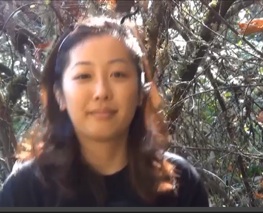what is love?



“To act in a way that the other arises as a legitimate other does not mean blind acceptance, it only means that the other does not need to justify its existence. When this is the case a relation is possible without prejudice, and both liking and not liking take place in full open responsibility. To like or not like another, according to what one sees without the distortion of a prejudice, and act being responsible for one’s liking or not liking, are acts in love. Contrary to this, to negate another according to what one imagines or supposes or wants the other to be, are acts in aggression.”
Maturana and Verden Zöller, The Origin of Humanness, p. 39
Does she love the snake?
This video is a series of enacted scenes,
(by a rather silly actor) and with less than optimal technical quality. However, they will serve to open the conversation, to have you think about what you as an observer see, and what you consider to be a loving relationship between the silly actor and the (plastic) snake. Enough said!
definition or abstraction
Recall the discussion in Unit 4.3 about the difference between an abstraction and a definition, and how it applies to the question of “what is life?”
Usually when people are asked the question “What is love” they either try to describe it, or offer instances of it as for example “love is when ... ” or they look for something that feels more significant, some transcendental essence. They are somehow disappointed when someone tries to explain that love is a rather everyday thing, that it happens simply as a manner of relationship.
It helps, I find, to indicate that this manner of relating that we recognize as “love” can be thought of as fundamental to how all matter relates to all matter, it is only living, consciously aware beings, that can relate in different manners not all of which we would consider loving.

In my experience people who first encounter this statement find it to be a mouthful; they find it difficult to grasp. This is a precise statement, and thus limits the potential misinterpretations that could result from ambiguity. Lets look at the parts, and then reread the whole with the pieces in place.
-
 domain of relational behaviours
domain of relational behaviours
domain refers to a field, a group, or “all those that” - from the total set of relation between a living being and its niche -
 the other
the other
this could be your child, a friend, a group of people, an animal, a forest or garden, or the whole biosphere. It can also be yourself when you consider yourself in self awareness as a being you can reflect on. -
 arises
arises
just happens, you do not have to “make it” exist, it is just appears in your awareness -
 as a legitimate other
as a legitimate other
it is inherently already legitimate; it does not have to excuse or justify itself, and, most important, it is not up to you. You do not have to “legitimize” it, it already is, and you have implicitly accepted this. -
 in coexistence with oneself
in coexistence with oneself
coexistence does not implicate any degree of nearness, or even of liking. It is just a matter of accepting its existence.
Some people like to say this implies “accepting an other as he/she really is” - but I prefer to not bring my own perception into the equation; I do not really know, there is no way I can know how anyone ”really” is.
There is no logical explanation entailed in the attitude of acceptance of another as a legitimate other.
what is “love”?
“Love is that domain of relational behaviours in which the other arises as a legitimate other in coexistence with oneself”
Maturana, many sources


love is common
One of the stories that Maturana likes to tell when addressing the notion that love is not only common, but can apply to many “others” including one’s circumstances is the story of the TV program “MacGyver” that aired in the late 80’s and early 90’s. MacGyver was always able to figure out some sort of solution to whatever circumstances he found himself in through maintaining an acceptance of the legitimacy of those circumstances which made all his knowledge immediately accessible to him. He loved his circumstances, even when he did not like them. (an example)
Amazon.ca
We all witness and participate in many instances of loving behaviour on a daily basis, and are generally comfortable as we fully expect to be treated as legitimate humans as we do our daily chores. We are more apt to notice when someone intentionally does not give way as we approach them on a sidewalk than notice the normal progress.
Nonetheless, we enjoy seeing episodes that demonstrate loving behaviour in unexpected ways.
a story about ducklings
love is not blind acceptance



love is visionary
love is unidirectional
We all thrive when we are loved. In particular we thrive when we are in a loving relationship where the one we love loves us. This leads us to value such relationships, and perhaps to forget that whether we love or not is entirely up to us, it is our doing. Whether we love does not depend on whether the other also loves us, no matter how much we may desire their company, or the special quality of the intimacy that grows when love is reciprocated.
Yet we do know that we cannot demand love. It’s not that it is “earned”, but if we wish to open a space for love to become reciprocal, we must do so in the acceptance of the legitimacy of the one we wish to be with.
I have found myself declaring “I love you even more than I desire you!”

“... the emotion of love is realized in the relational behavior of the lover only, as the loved one arises as a legitimate other through the behavior of the lover without necessarily being an active participant in a loving or any other relation with the lover. Due to that love is intrinsically unidirectional, and liberates, that is lets the other be even in the act of separation. Power, on the other hand, is bi-directional as it takes place in a relation of domination and submission that entails self negation of both participants. The one that dominates negates him or herself as an autonomous being by acting as if his or her superiority were intrinsic to him or her, and the one that submits negates him or herself in the act of submission. Relations of power create resentment. Love, as it operates in self-respect and self-acceptance, brings with itself well being.”
“Relations of love generate freedom and invite collaboration, even when due to their uni-directionality they are lonely. As a result love generates the conditions for love through the well being that it generates, and when love is reciprocated companionship may result. Love is visionary, not blind, and through the vision that it entails it brings forth the relational space of love.”
Maturana and Verden Zöller, The Origin of Humanness, p. 39, p. 40
love is the only emotion that expands intelligence
This observation by Maturana, has, I think, been fully accepted within the SelfDesign community. Maturana himself came to the explicit expression of this through partly through being told by his colleagues that he “got all the smart students” in his biology class. He responded by telling them that the students became intelligent according to how he related to them.
Having thought about how love is that emotion that most broadly makes all our vision possible you may yourself see new depths in the statement. Further, if you add to this the realization that as a person accepts his or herself as a legitimate “other”, then all her competencies, all his existing knowledge, is accessible to the current circumstances. The natural dynamics of the “gift of our heritage”, our richly complex biology, all becomes available.
What you may not have considered is what “intelligence” is. Again I find Maturana’s statement the one that resonates for me; namely “intelligence is plasticity in relational behaviour.” It is not a mechanical response as a robot, no matter how well programmed, might be capable of. It is the appropriate change of the inner structure that enables the behaviour to change in a manner that fits with each new circumstance, however complex or subtle, in a manner that conserves adaptation and even intimacy.


optional further readings:
Instead of trying to categorize many “kinds of love,” when we understand the notion of love as a relational domain in which the other is inherently legitimate, we can see that many actions are possible in accord with this.
Thus love can be lived in all circumstances, each according to what is appropriate.
I do not regret



A beeuitiful day!
This little video was made by students
at Royal Roads University, Oct. 2013,
as part of a presentation on concerns with declining bee populations.
(actors Joanna, Alex, and Léane, videographer Matthew)
Enjoy! (click on the image)



